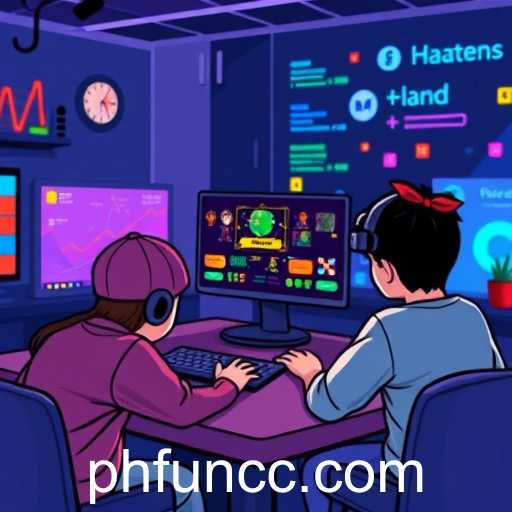As digital technology continues to shape various industries and aspects of daily life, the education sector is no exception. With the growing popularity of online gaming platforms, a significant transformation is underway in how education is delivered and received. A noteworthy player in this field is 'phfun,' a prominent keyword associated with an English game website, which has seen considerable traction recently.
Online gaming, once perceived primarily as a source of entertainment, is increasingly being integrated into educational methodologies across the globe. This shift towards 'gamification' in education leverages the engaging and interactive nature of games to facilitate learning. By harnessing the inherent motivational elements found in games—such as goal setting, competition, and feedback—educators are discovering new ways to enhance student engagement and retention.
In recent years, especially as the world navigates through the post-pandemic era, there has been a significant shift towards digital and remote learning environments. Educational institutions are experimenting with various digital tools, including game-based learning platforms, to keep students motivated and focused. This trend has led to a surge in the development of educational games targeted at different age groups and subjects. Resources such as 'phfun' play a crucial role in this transition by providing accessible and diverse educational content tailored to the online gaming community.
The impact of this transformation is profound. Students who engage with educational games report improved problem-solving skills, greater retention of complex concepts, and increased collaboration skills. Games offer immediate feedback, allowing students to learn at their own pace and adjust their strategies accordingly. Additionally, gamification in education helps cultivate a growth mindset by encouraging learners to view challenges as opportunities for improvement.
While the benefits are apparent, there are still hurdles to overcome. Concerns regarding screen time, digital literacy, and equal access to technology need to be addressed to ensure that all students can benefit from these innovations. Furthermore, as educators and developers continue to collaborate on creating effective learning games, maintaining a balance between educational value and entertainment remains a critical challenge.
In conclusion, the intersection of gaming and education emphasizes the evolving nature of learning in the 21st century. The continued development and integration of platforms like 'phfun' indicate a promising future where education is not only accessible but also engaging and adaptable to the needs of the digital age.








